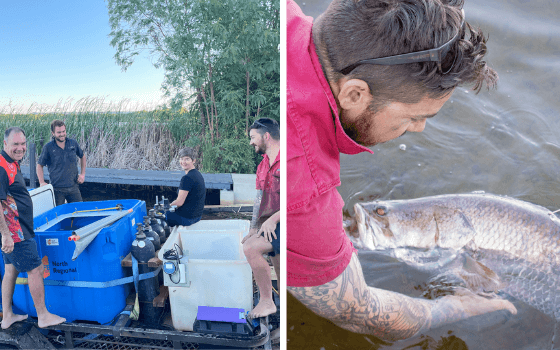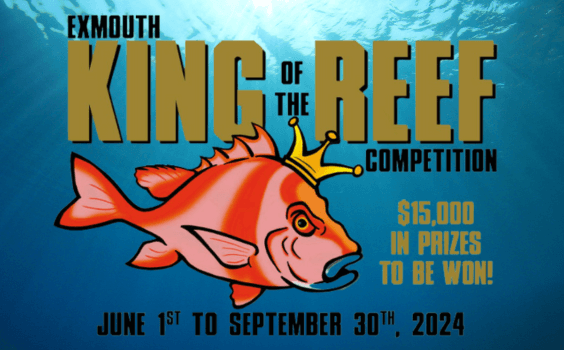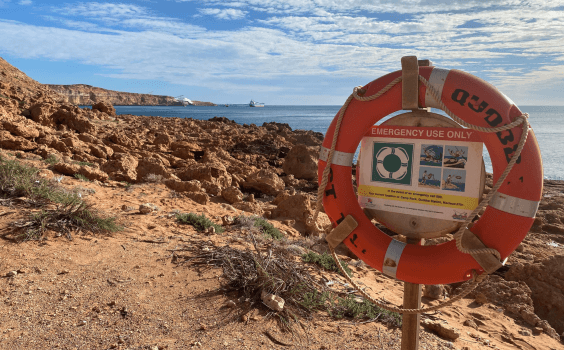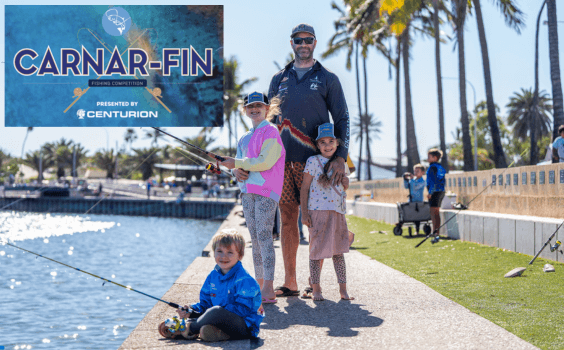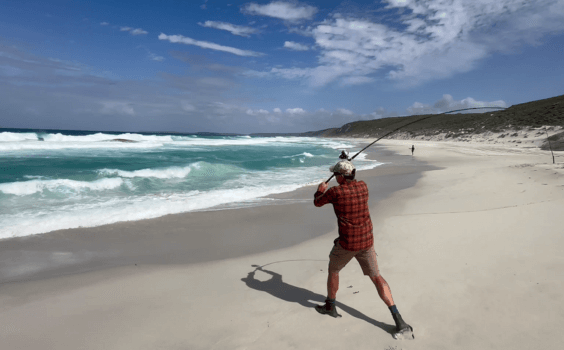It’s a fish journey that gives Finding Nemo a run for its money.
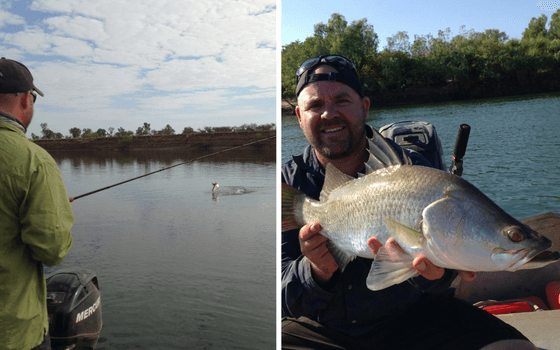
Rewind to 2013 in the East Kimberley Ord River in Kununurra, where 12 barramundi were caught, placed in a specially adapted trailer and transported over 1,000km north-east to North Regional TAFE’s Aquaculture Centre in Broome.
Over the past nine years, they grew from around 50cm in length to about one metre, changed from male to female and spawned almost a quarter of a million baby barra between them.
Last Friday, those original 12 barramundi made the 1,000 km ‘return-journey’ and were released into Lake Kununurra, where they will see out the rest of their years.
“It was so good seeing these animals go full circle and return to where they’re from,” said Milton Williams, North Regional TAFE Senior Aquaculture Technician, who has worked at the centre for the last 15 years and oversaw the release operation of these magical fish.
“Having seen them grow and do their bit spawning, it was so rewarding watching them swim off into their wild habitat.”
It is a testament to the stocking program run by the North Regional TAFE in Broome and the local Lake Kununurra Barramundi Stocking Group, which has seen more than one million barramundi released into its waterways since 2013.
Find out more about the stocking program and fishery on Lake Kununurra here.
Breeding barra for a Kimberley “Barradise”
Lake Kununurra has since become a world-class hotspot for anglers chasing one-metre giants in ‘barra-dise’. According to a 2020 report conducted on the restocking program, the economic value of barramundi fishing to the region is already $7.6 million per year.
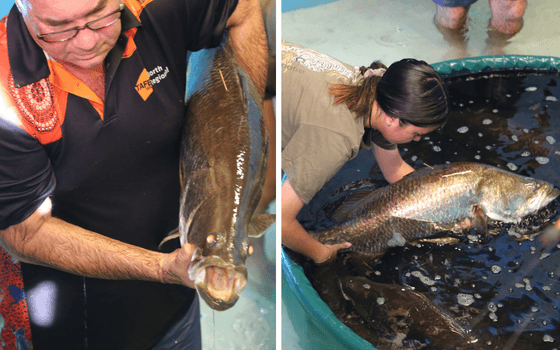
To ensure the fish are healthy in the centre and contribute to the growing species abundance, their diet includes fresh “human-grade” seafood including mullet, whiting, prawns, squid and pilchards.
As barramundi are protandrous hermaphrodites, they also change sex from male to female once reaching five to six-years-of-age at around the 90cm mark.
Milton said the female fish have produced eggs consistently well over the last few years, whereas the males might have been suffering from a little ‘performance anxiety.’
“The females have spawned consistently well, it’s the males we have trouble with,” said Milton. “They don’t always fire and we rarely have them all in spawning condition at once – usually it’s about half of them. Between these fish they have successfully contributed 214,000 barra fingerlings that have been transported and released in the lake.”
For their 12–14-hour journey back to Lake Kununurra, the fish were purged so none of their waste impacted on the pH of the water, which can be lethal to the fish. The ratio of fish to water in the oxygenated transportation tanks was 80kg of fish to 800L of water.
Once at the lakeside, water was slowly pumped through the tank to allow the fish to acclimatise and “osmoregulate” from the saline water in which they were kept in at the hatchery and in the transportation tanks to the freshwater environment of the lake, as well as adapting to temperature changes.
A special fishery being delivered by a strong partnership
Recfishwest CEO Dr Andrew Rowland commented, “It’s great to see these fish being treated with the respect they deserve being released back into their natural habitat after contributing to this great program.
“Thanks to fish like this and the fantastic efforts of North Regional TAFE, the local Lake Kununurra Barramundi Stocking Group and the support of the State Government, the lake has flourished into a special fishery in a beautiful part of the world. Where else do you get the chance to catch metre-long barra in such a safe and accessible setting?”
